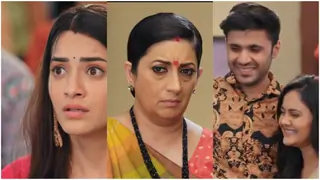Originally posted by: Kwerky
I agree with you...and when I was talking about the advantages of the format...I was more inclined towards the US TV shows...which come back with seasons and a pretty solid script...not the Korean TV format. 😊
Today, a lot of stress is laid on viewer engagement and everyone wants to increase the shelf-life or the longevity of a show/story...the one season format might not sound ideal. But that works very well in Korea or Japan. True...people will lament once a show goes off-air...but if it was good, it creates a legacy/lasting impression in the minds of the viewers and in today's social media riddled world - they connect with the actors (portraying the character) ...ensuring that the characters/show stays fresh for quite some time.
If we go back to the good old Doordarshan days of 80s and early 90s...we had finite series...some of them finished in 20-odd episodes...there was also the norm of 13-episode shows...but people still recall them very fondly and with a lot of nostalgia. Decades after they ended! And this when there was no constantly in-your-face media blitzkrieg to promote the shows at that time...or fan pages etc to foster connect.
There is the case of "Firefly"...a TV show aired in the US in 2002. It was canceled after only 11 episodes aired but since the content was good...it had large fan support campaigns to save it...achieved a cult status when it was released on DVD...has a movie spin-off owing to demand, besides other spin-offs in comics etc...and there is still hankering for its return.
So I would say...content and execution matters...whatever be the format.
@bold: As you say...satya-vachan!😆😆
The US format is suited for weeding out the trash, but it doesn't always work either. I am thinking of "The Big Bang Theory", "Bones", "HIMYM", "Scrubs", etc. "Bones" was rubbish from the start, but the other shows lasted way longer than they should have...
As you say for "Firefly" though, there is certainly nothing wrong with series of finite episode counts. Such series, depending on how well they are made, on how deeply crafted the characters are, how engaging the story is, etc. etc. even short series can be profoundly moving.
But batao mujhe... Would you not like to see more of Sarabhai vs Sarabhai? It runs for more than 50 episodes (so, it is certainly longer than the 13- or 20-episode series), and I have watched all of the episodes again and again, but mera mann kabhi bhartaa hi nahin hai. I sooo wish, there would be more episodes of that show...
And if we were to have the Korean equivalent of S vs S? I'm sure those people crave for it. (As also I guess, fans of "Firefly"...)
I believe, there will be no one-size-fits-all solution to this...




















